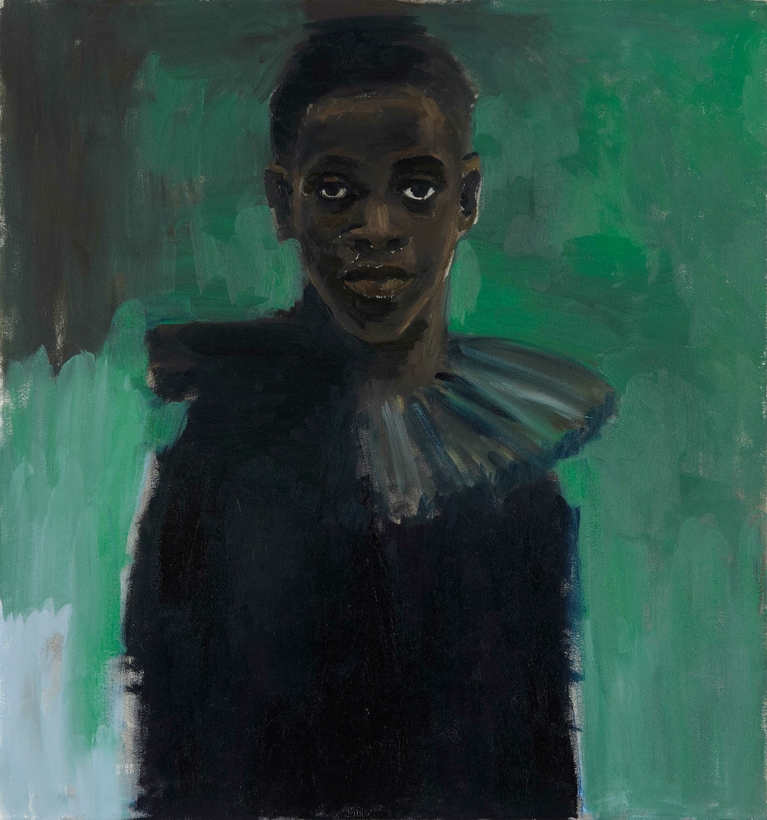The faces in Lynette Yiadom-Boakye’s portraits feel familiar: located in the where and when of memory, yet just beyond recognition. The British-Ghanaian artist paints people dancing, seated, and smiling, playing on a beach or huddling in a circle, but her subjects are fictive, conjured from the imagination. This “slight remove from reality,” says Isabella Maidment, a curator of contemporary British art at the Tate, is a distinguishing feature of Yiadom-Boakye’s work, which will have its first major survey at the museum, beginning on May 17.

The exhibition’s title, “Fly in League with the Night,” is in keeping with the poetic ambiguity seen in these paintings. Yiadom-Boakye, who is also a writer, gives her portraits names such as Sapphires Under Cotton, Appreciation of the Inches, and Complication, which reveal little about their subjects. As Maidment points out, although the people that Yiadom-Boakye paints are “intimately knowable” (there is nothing fantastical about them, apart from their astonishing beauty and elegance), they are also deeply mysterious. Amid backdrops of loose brushstrokes, and dressed in nondescript clothing, the subjects, most of whom are Black, seem to exist in an absence of time and place.
“The confusions and conditions within the work are the politics,” Yiadom-Boakye told Interview magazine in 2017. In other words, the uncertainties of when, where, and who complicate straightforward interpretation. And while nods to Western portraiture, from the Baroque to Impressionism, abound in her paintings, she’s added color where there has historically been overwhelming whiteness. These references challenge art-historical narratives, while the covert identities of the imagined sitters, who demand to be understood in their own right, challenge viewers. If political art is known to spell out its meaning, Yiadom-Boakye’s work is charged by the unknown. “We think we know what political art is supposed to look like,” she has said, “but I think there are many ways to make it.”

The Tate’s exhibition has been many years in the making. The museum first acquired pieces by Yiadom-Boakye in 2012—10pm Saturday and A Generosity—and the next year, she was nominated for the museum’s Turner Prize. The postponement of this year’s survey was a disruption that provided, says Maidment, a “silver lining,” because the exhibition now includes paintings that the artist made in lockdown. And with last summer’s Black Lives Matter protests, the show gained fresh urgency. “The systemic and structural change necessary to combat racism and white supremacy,” Maidment explains, “is at the forefront of our minds.” Political art is often pointed, but Yiadom-Boakye paints what cannot be plainly expressed—her meanings are “very visual,” she has said, “and felt, thought, seen.” The work, as Maidment observes, goes “beyond words,” and this is the quality she means to showcase. —Clementine Ford


 Discover
Discover